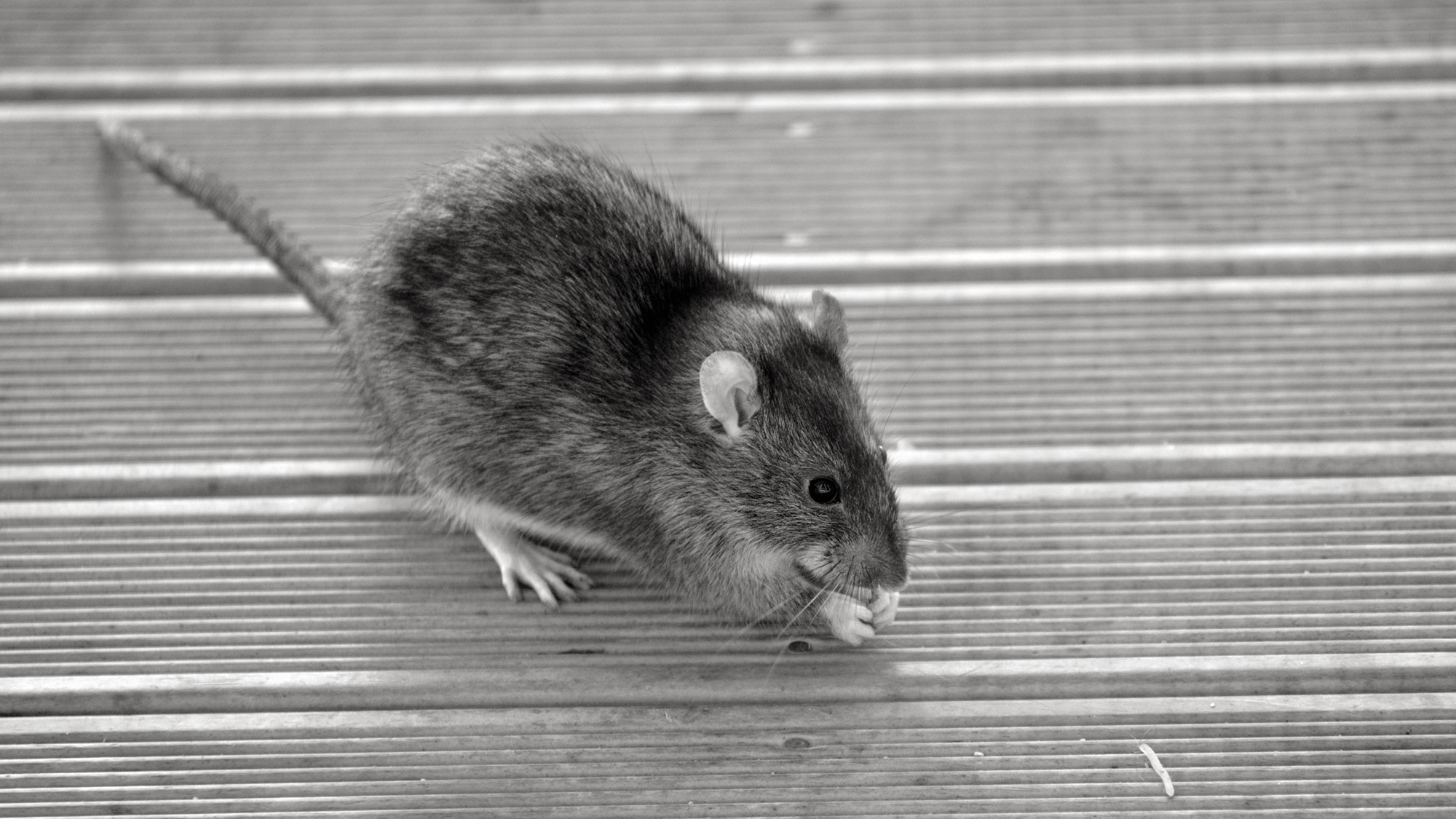
I’m all for inviting wildlife into my backyard. I’m an advocate of bringing in the birds and the bees, but some wildlife is just way too wild for my liking.
If your garden is bursting into life with the help of summer sunshine and a warmer climate, just like mine, you could be at risk of some unwanted visitors dropping in for a permanent staycation.
But before the pesky pests set down their suitcases, I want to send them packing with the label ‘No return.’
Rats are one pest that shouldn’t have an open invitation to your yard. The rodents are considered vermin and can potentially spread serious diseases. But they’ll be enticed by food and will happily settle under decking, sheds, greenhouses, and compost bins.
So, how can you prevent rats from visiting your backyard? Richard King, garden expert at Dino Decking, shares his top tips on how to prevent rats from nesting in your garden decking this summer and invading other areas of your backyard, too.
King says, “Decking doesn’t inherently attract rats, but it can offer ideal shelter if your garden already has features that draw them in, such as accessible food sources, water, or dense vegetation. It’s important to manage these attractions to prevent infestations.”
1. Clear away food sources
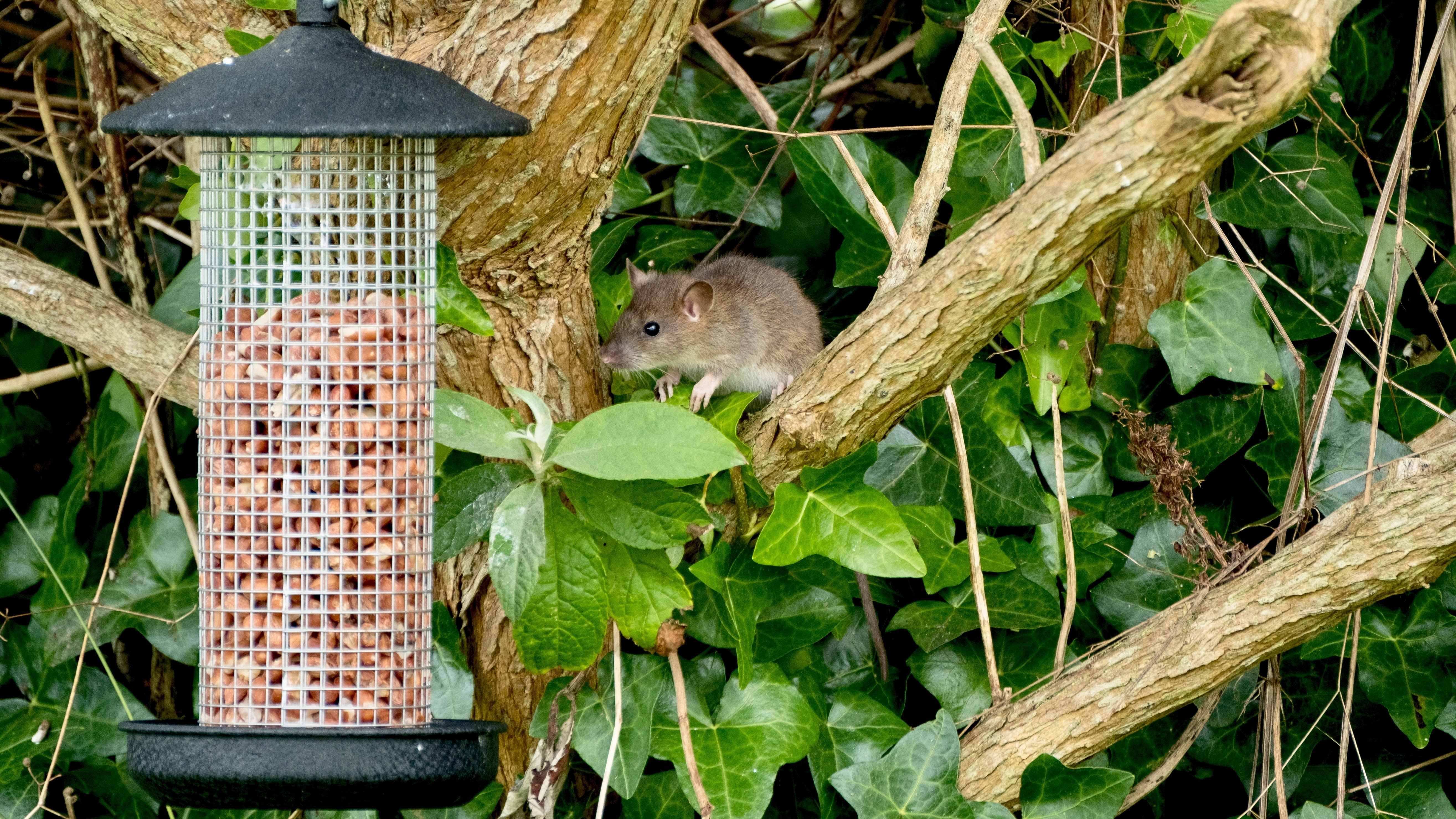
Rats are drawn to quick and easy meals. “Make sure to always clean up any dropped food after barbecues or garden parties on the decking to prevent pests from being attracted to the area,” advises King.
Anything from small crumbs, leftovers, and even bird seed can attract rodents overnight, so to help prevent rats from taking over, “If you feed birds or wildlife in your garden, opt for feeders that minimize spillage to reduce the chance of attracting rats to your outdoor space,” he says.
2. Secure your compost bin
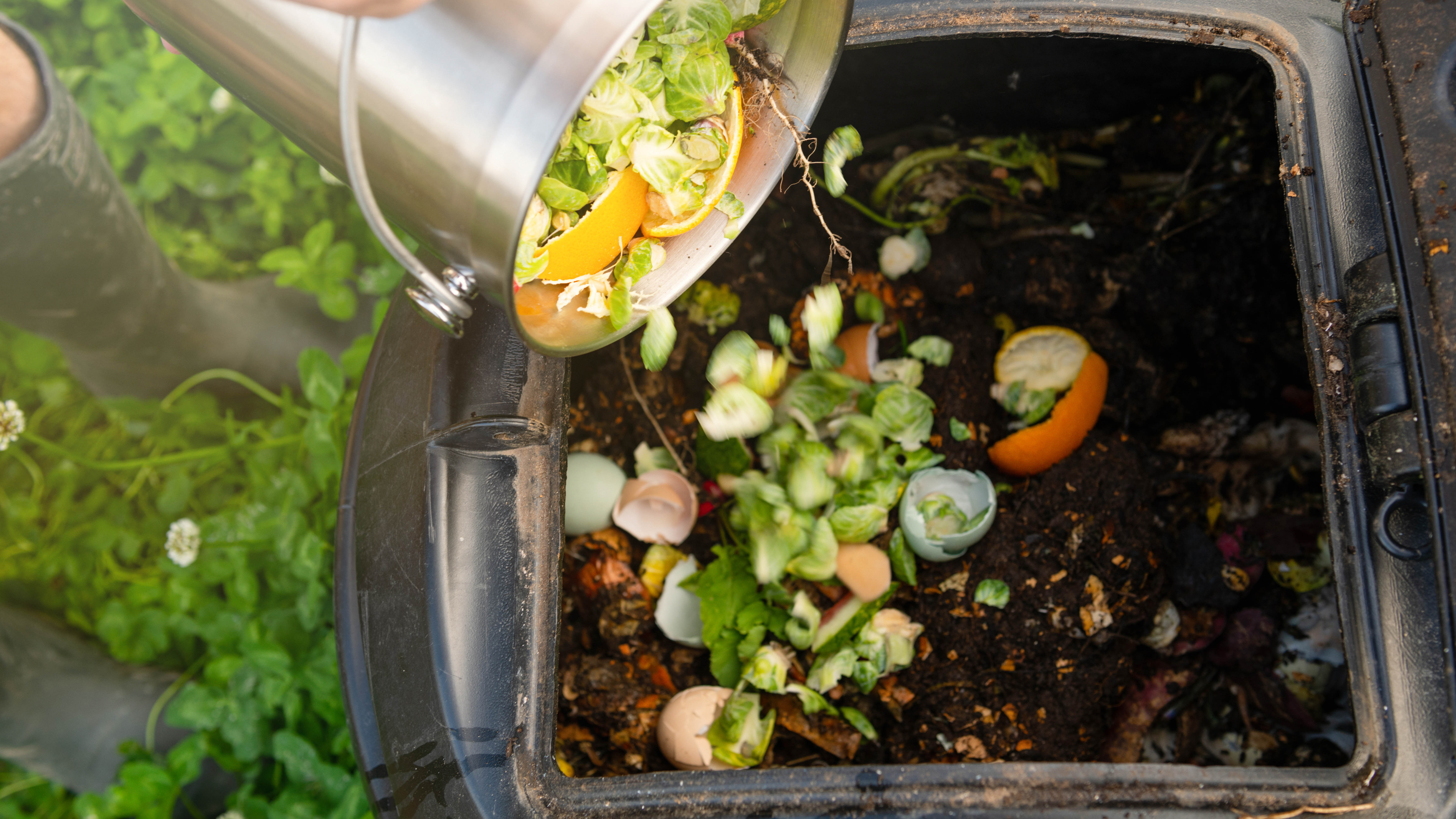
There’s nothing wrong with having a compost bin in your yard, but the warmth and food supply they offer will attract rats. To make your compost bin less accessible to these pests, King recommends using a sealed compost bin with a lid rather than an open heap. He adds, “Turn the compost regularly, and where possible, avoid adding cooked food or dairy products, as these are particularly attractive to rodents.”
And to protect your decking, King says, “Position compost bins away from your decking, and place them on hard, flat surfaces. You can even line the base with chicken wire to stop burrowing from below.”
3. Remove excess water
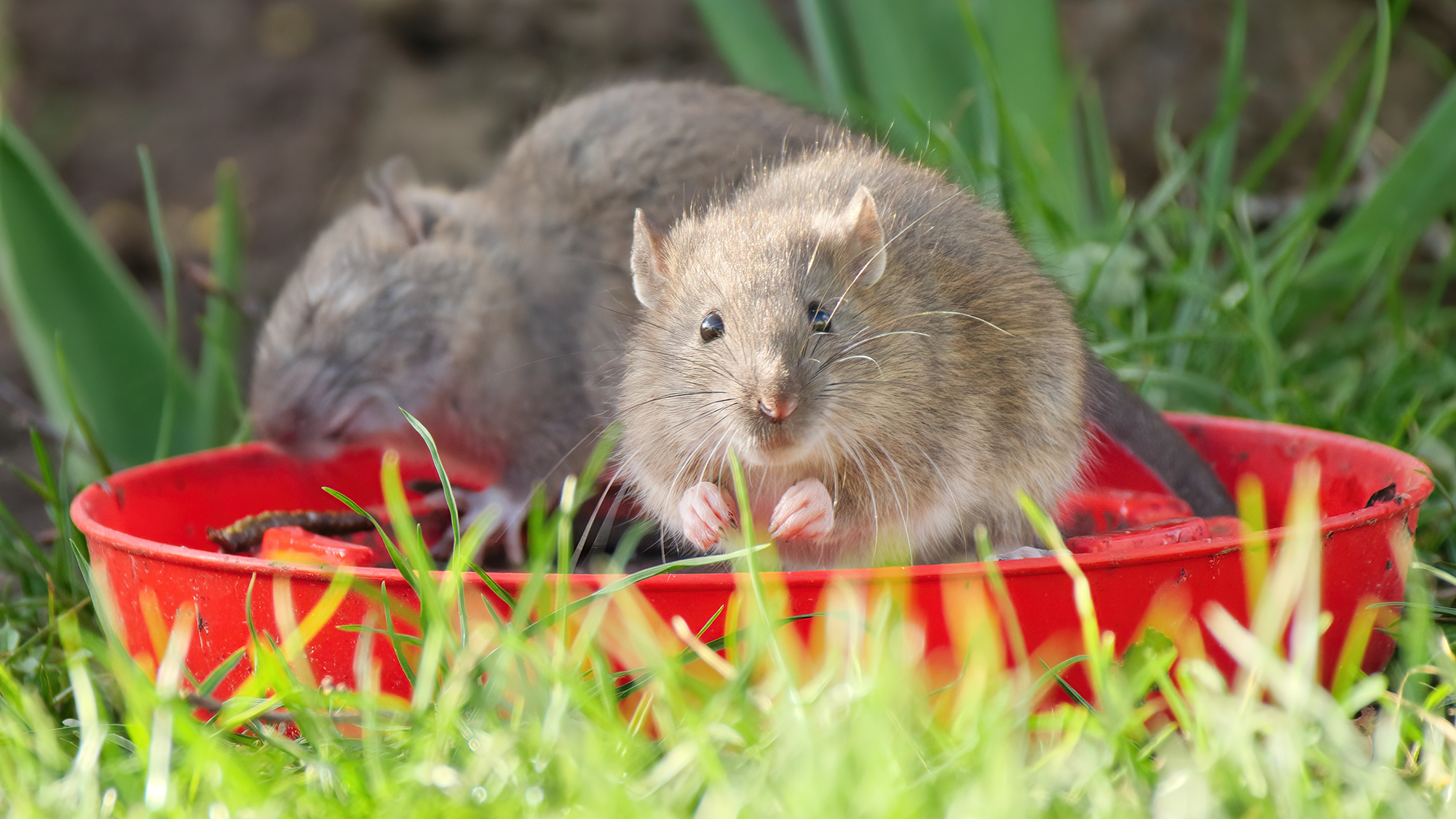
Rats require a consistent and reliable water source, so if your decking is uneven or lacks sound drainage, Kings says puddles can form, which will act as a drinking reservoir for thirsty rats.
“Check your decking for any areas where water tends to pool, and make repairs where necessary,” says King.
It’s also important to check outdoor taps for leaks and look for any empty containers that may collect rainwater, which can be easily turned over if you need to store them outside.
4. Tidy your yard
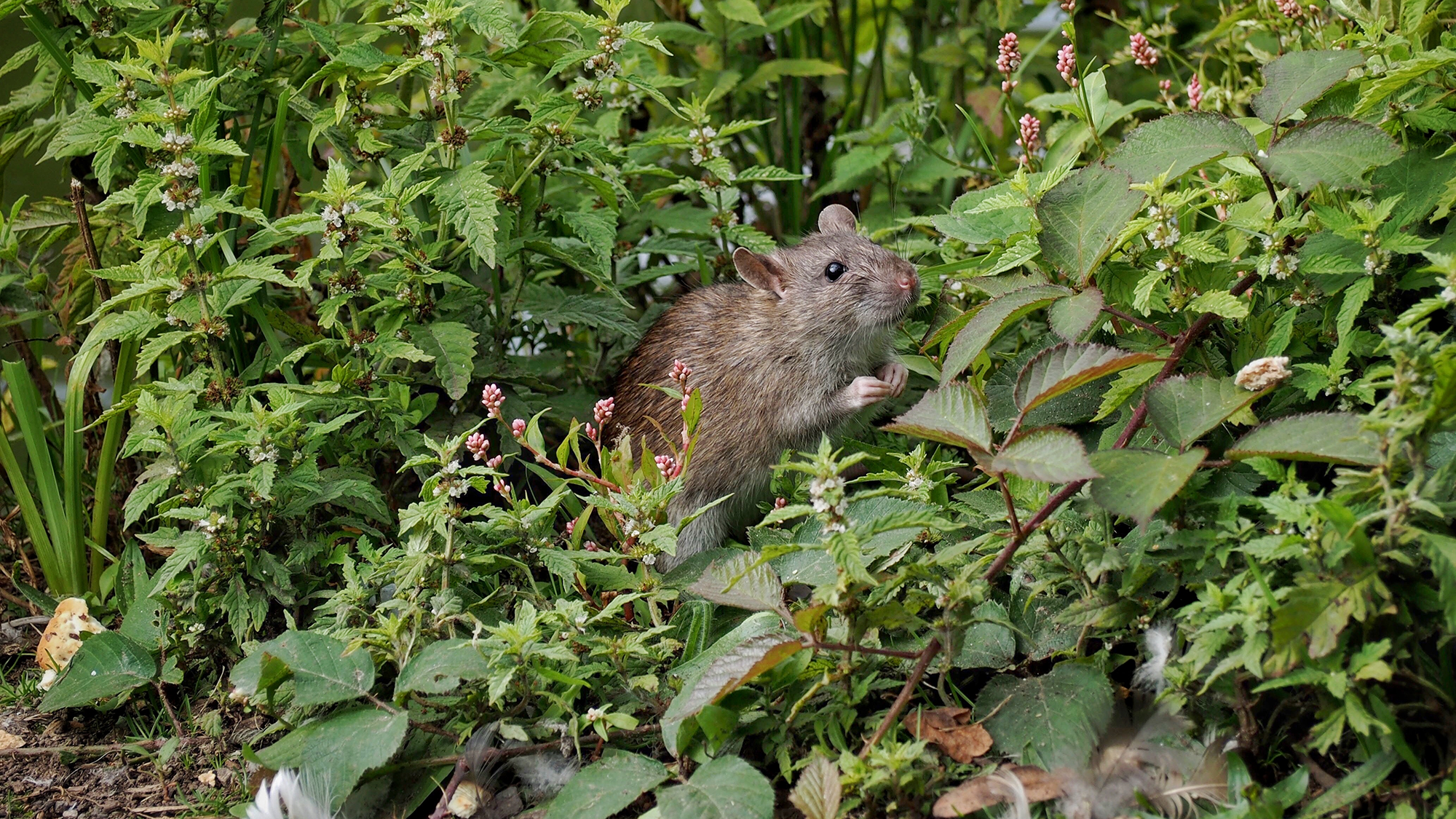
While we can’t all have an immaculate backyard, overgrown vegetation and clutter provide perfect cover for rats looking for shade on warmer days. So, to deter rats from making a basecamp in your backyard, you’ll need to get out your best pruning shears and give them a tidy-up.
King advises, “Keep hedges and shrubs trimmed, and clear out piles of wood, leaves, or unused material, where rats could hide.”
And don’t forget your lawn. “Mow the lawn regularly, as the more exposed and well-kept the area is, the less appealing it becomes to rodents looking for a quiet nesting place,” he adds.
5. Install a rat barrier
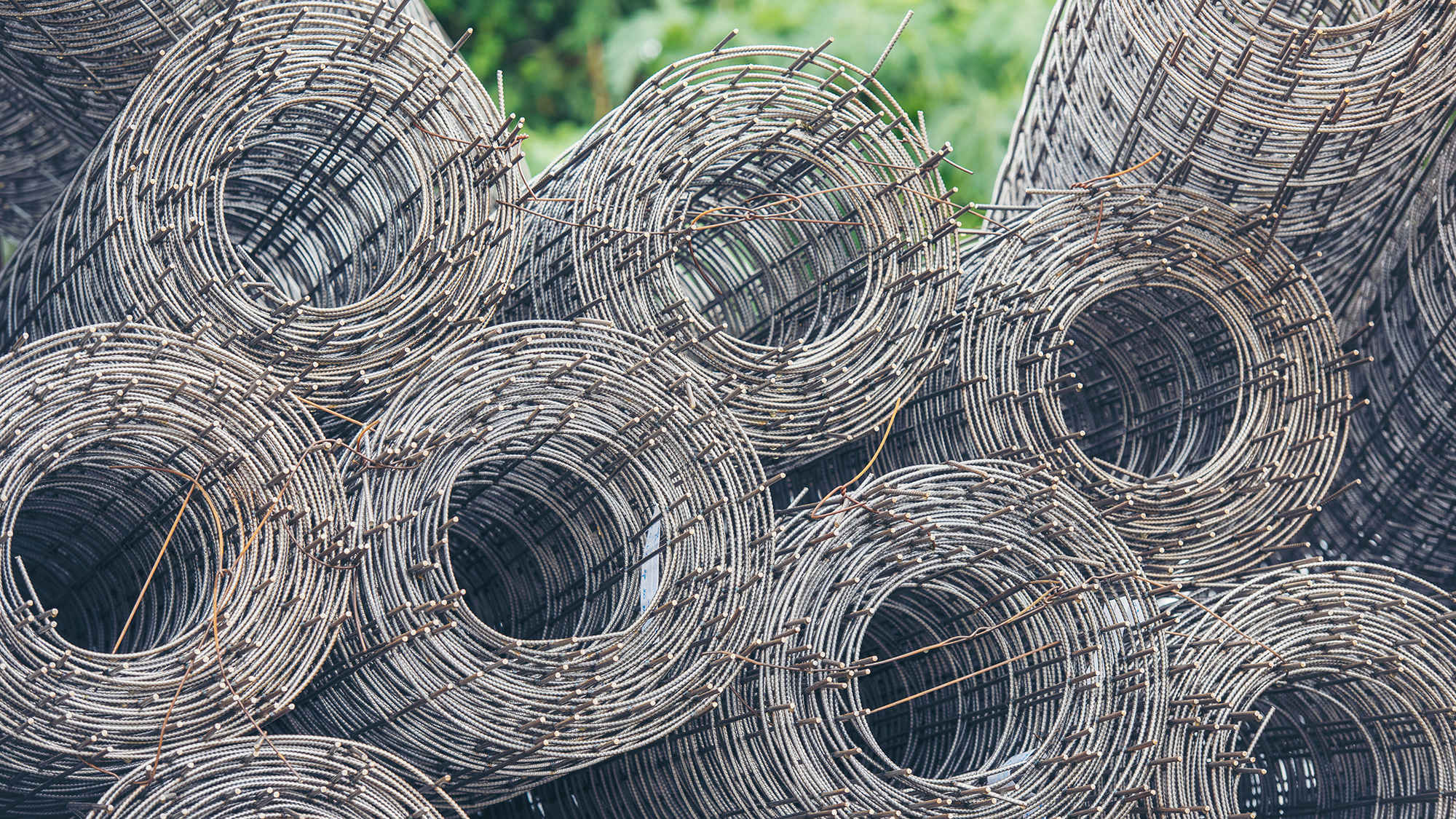
Similarly to barricading your compost bin, King recommends sealing areas around your decking to deter the pests from nesting. Creating a physical barrier that rats can’t easily get through won’t be noticeable from above.
King suggests using fine wire mesh or galvanized chicken wire to seal the perimeter. “Just make sure it’s buried a few inches into the ground to prevent rats from digging underneath,” he says.







